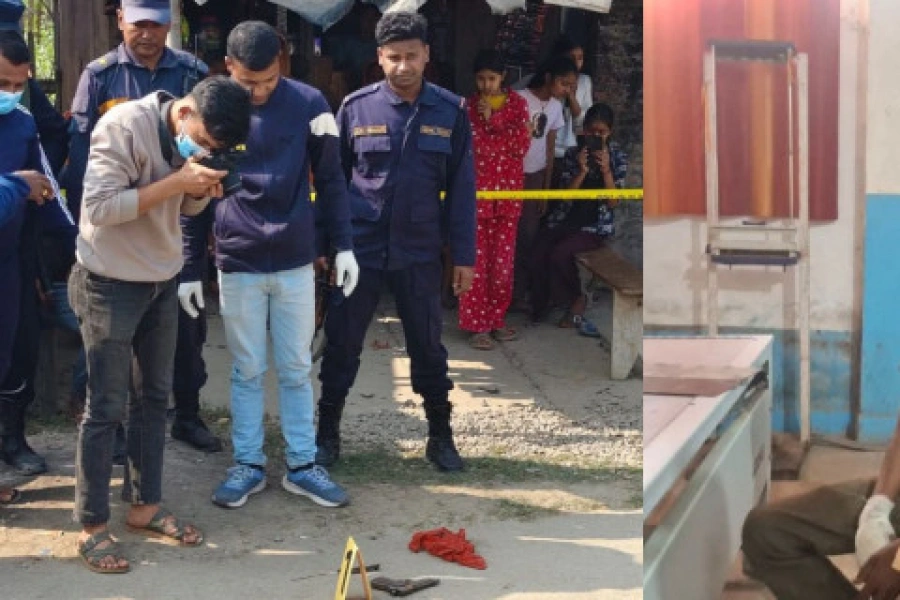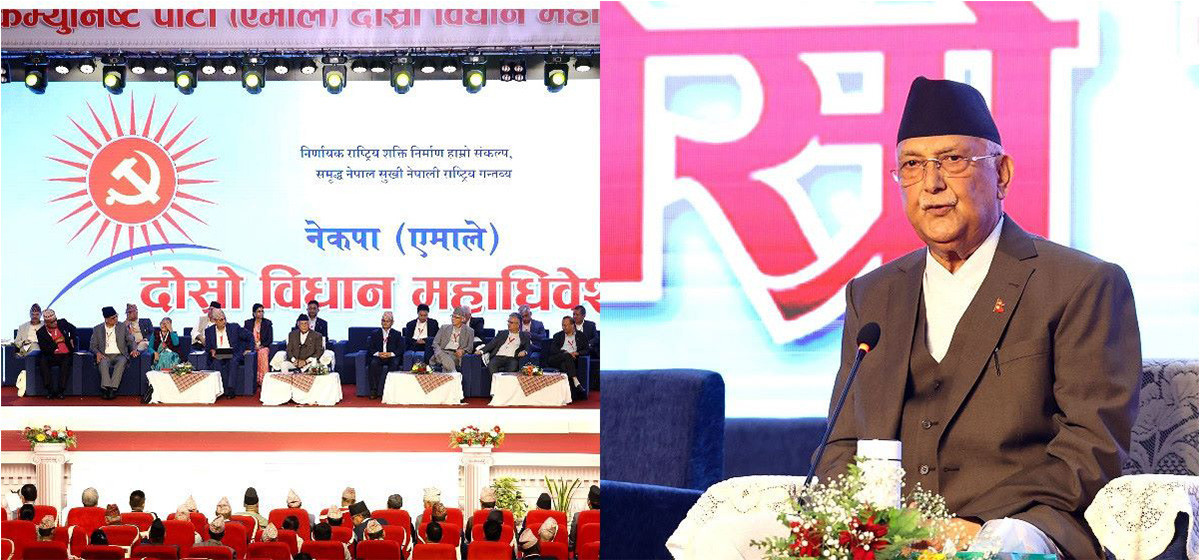DANG, Aug 3: The debate on ending the long-standing factional internal conflict within the Nepali Congress (NC) has been going on for years. The intra-party conflict, which is becoming more and more visible due to the 'personal resentment' against each other, is a huge challenge to the ongoing ‘internal unity’ debate within the party.
The internal competition in the party or the sense of revenge seen during the general elections has not only polarized the Nepali Congress supporters, but has also led the supporters of the same party to even stop talking to each other at the local level again and again. As a result, it is doubtful that the central leadership or the central leaders' debate to end the factionalism at the upper level will end the discord between the Nepali Congress supporters at the lower levels.
The Nepali Congress Central Committee meeting held a few days ago made the traditional decision to ‘manage the internal strife of the party’ again. Further, the proposal of party general secretaries Gagan Kumar Thapa and Bishwa Prakash Sharma envisioned the creation of a ‘whole Nepali Congress’. Although the proposal of the general secretaries that seeks various measures to unite the Nepali Congress supporters currently divided in factions, seems to be all good on paper, the question of how practical it is has arisen in the minds of the office-bearers. Even though the top level of the party is trying to transform the party in the modality of the general secretaries' proposal, its implementation at the local level is equally challenging for the Nepali Congress supporters at the lower level.
Way to solve India-Nepal border dispute

Some of the local level Nepali Congress office-bearers, who formed factions one after another and developed 'grudges' against each other, rightly backed the proposal of the general secretaries, while others tried to outdo the senior leaders. "It is not correct to say that I will change the modality of the party by choosing a different path from the senior leaders," said an activist, "Rather than biasing the seniors, it should be decided on how to move the party forward with their advice."
If we look at the structure of the Nepali Congress at the local level, the dominant factions at the center are strong. For years, the local activists who are determined to establish or maintain the dominance of other groups have been feeling that the faction they are associated with is only the true Nepali Congress. As a result, the sense of revenge is being awakened by the fight between the two factions. "As in the center, the establishment and other groups are becoming stronger in the districts," said a Dang district leader of the Nepali Congress.
Not only the factions created at the central level, but also the individual factions born by the district level leaders, the challenge of integration among Nepali Congress supporters are more visible at the local level. From representing the district to the center, from the central leaders to the district level leaders, they are building individual factions to consolidate their influence at the local level.
Nepali Congress supporters belonging to such factions are often harsh towards each other. As a result, the challenge of 'ideological unity' among them is more challenging. "The emergence of individual factions at the ward level in order to exert their own influence makes the integration within the party more challenging," said a Nepali Congress leader, "Such individual factions are the most dangerous ones."
Due to the factions that were born in Dang, they are constantly engaged in disagreements and conflicts. The feeling of ‘I’ll show you’, ‘just wait and watch’ is becoming stronger than mutual unity among them. Their unity is being hampered by the feelings of mistrust and rivalry among them. As a result, they are divided even during regular elections. Such divisive groups, which disregard the party's central decisions and instructions, are problematic and can hinder progress. It remains to be seen how this situation unfolds in the future.
NC supporters are seeing the challenge of how far the party leadership can maintain the emotional unity among all by extinguishing the individualist factions spread from the district to the ward level. Nepali Congress Lumbini Province President Amarsingh Pun said that the party must adopt a policy that binds the Nepali Congress members to party rules and regulations.






































